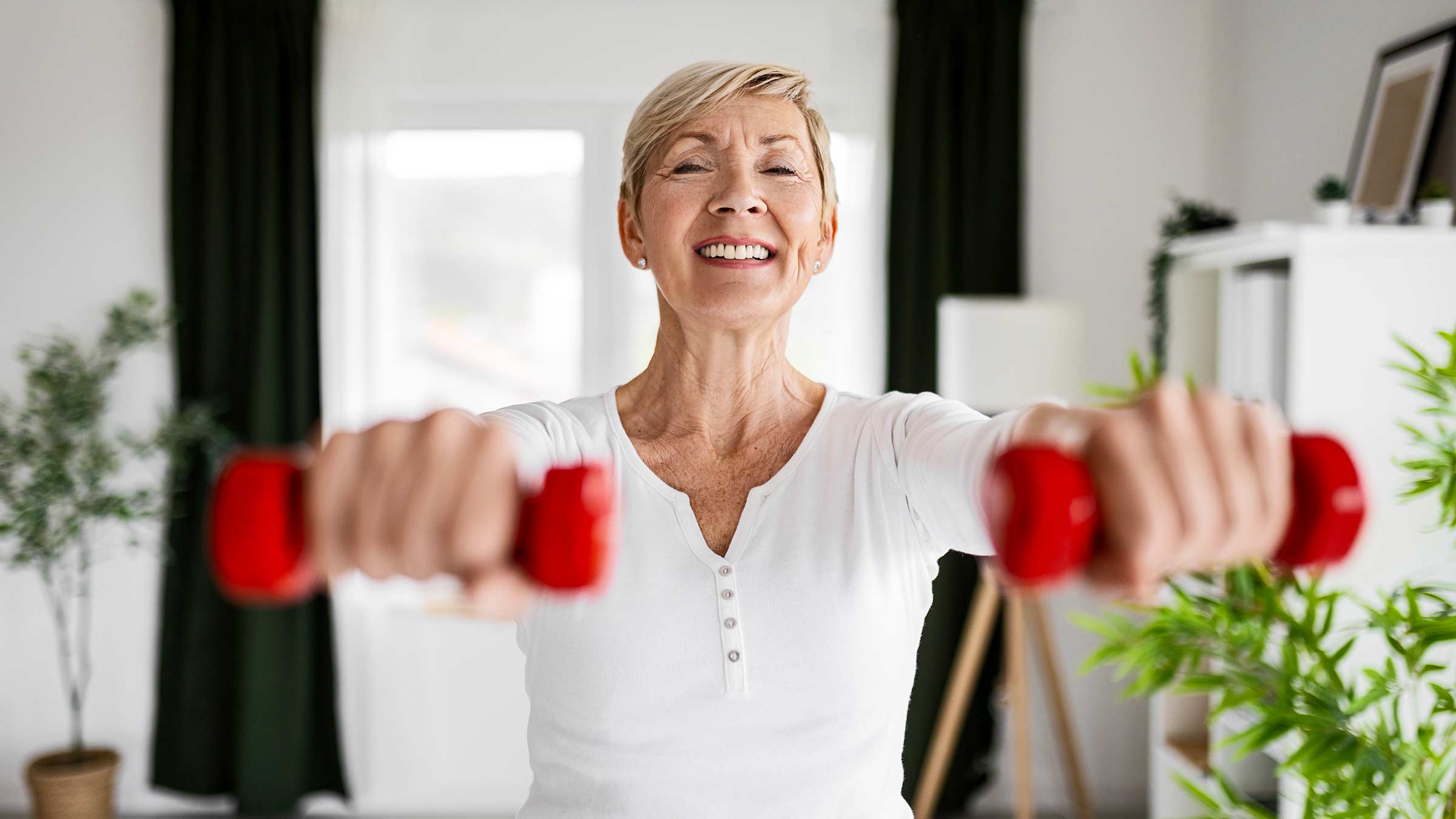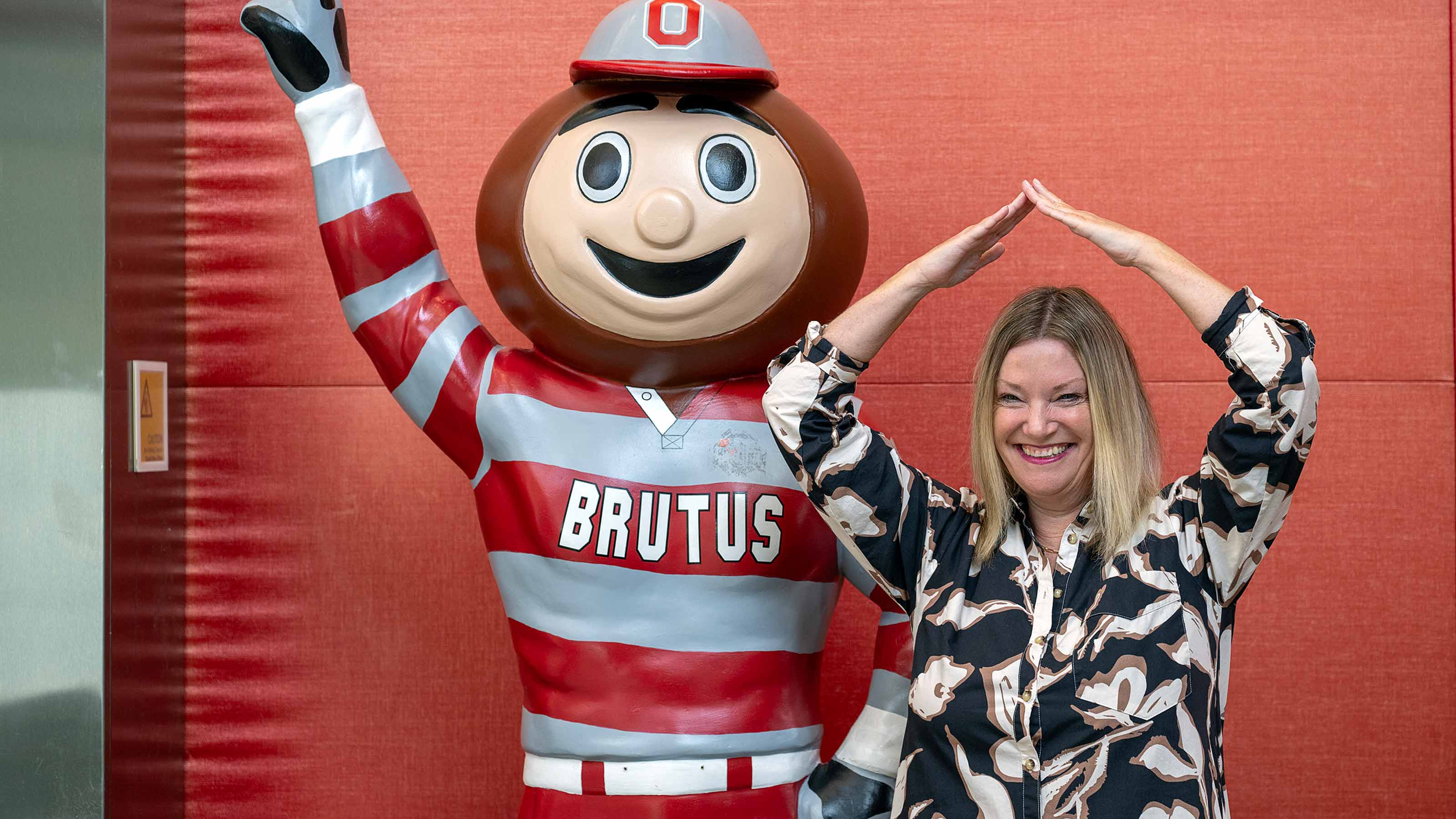
Caring for your own health as much as you care for your family’s is the key to a balanced lifestyle — and to looking after your loved ones.
The Sports Medicine team at The Ohio State University Wexner Medical Center understands the importance of staying active, whether you’re an athlete or adult wanting to stay healthy and strong at every stage of life. We asked for their best advice that can apply to anyone — from busy parents on the go to seasoned athletes.
The best thing you can do for yourself is to let go of common misconceptions and self-defeating beliefs. Here are a few fitness mindsets that could be holding you back:
“I’m not an athlete, so what’s the point?”
We were made to move. Challenging your body means improving your health.
“Patients often think if they are not the best at an activity or not ultra-fit, there is no reason to exercise,” says James Borchers, MD, MPH, a former Ohio State football player turned sports medicine physician.
But even if you’re never going to be an elite athlete, moving and challenging your body is incredibly important for your overall health. The more muscle you build, the higher your base metabolism will be; this means that your body burns more calories at rest than a lower metabolic rate. Additionally, building and preserving muscle only increases with age (as we all eventually start to lose muscle if we don’t use it — that’s called age-related sarcopenia).
Dr. Borchers commits to cycling six days a week and lifting three days a week. But if a daily, 30-minute walk is all you want to commit to, that’s worth doing! If you like to multitask, you can set a great example and foster family bonding by scheduling a weekly hike, bike or jog around the neighborhood with your friends and family. And when you’re done, don’t forget to give yourself a pat on the back for accomplishing something that day.
“I’m terrible at this exercise. I’ll just skip it.”
If you don’t practice a skill, you can’t get better at it.
Many people find pull-ups difficult, but that doesn’t mean they shouldn’t try to get better at them. Dan Inglis, director of Sports Performance at Ohio State, notes that it’s not uncommon for people – even top athletes – to only want to work on what they’re good at.
Sure, it feels great to breeze through a workout you’ve mastered, but your fitness routine could help you overcome your weaknesses, too. It’s all about self-improvement.
Every skill takes repeated practice to get better. Next time you’re in the gym, try out an exercise that you’ve been dreading. Start with as many reps as you can do and aim to increase reps over time as your strength progresses; soon, you’ll be a master!
“I don’t need to rest from the gym”
You can’t improve if your body can’t restore itself.
For some fitness enthusiasts, rest is a four-letter word. The drive to push harder, run farther and lift more is great for staying on track and achieving new personal bests, but when you’re training hard, knowing when to rest is crucial for recovery.
“When something is hurting, your body is telling you that you are breaking it down faster than it can rebuild itself,” says Melissa Gallatin, PT, AT, OCS, a physical therapist specializing in endurance sports. “When you rest, your body rebuilds itself so it can get stronger.” Proper rest helps prevent injury, stagnation and just plain burnout. Pain is not the ideal indication for rest; it’s more of an alarm.
Think about rest like a typical day: After you work for eight hours (the exercise), you need to ample time relax (rest) and adequate sleep (recovery), so you’re refreshed and ready for the days ahead.
So, go ahead, schedule your rest days just like you would your training days, and listen to your body when it’s telling you it needs some time to recover.
“Only bodybuilders need to lift weights.”
Strength training is your friend, even if big muscles aren’t your goal.
Physical therapist Claire Plummer Such PT, DPT, SCS, AT, and performance coach Dan Inglis agree: Everyone should add weightlifting to their fitness routine. From weight management to bone health to simply functioning every day, weightlifting produces amazing benefits.
In particular, many women refuse to lift heavy weights for fear of getting “bulky.” But according to Plummer, “unless women are doing something to alter their natural body chemistry, or specifically working out to build muscle, this is an extremely unlikely occurrence.” Plummer’s own routine includes weight training in addition to cardio and yoga; this routine keeps her fit enough to tackle triathlons, teach Irish step dancing and play in a recreational soccer league.
Once you get the proper form down, pick up those heavy dumbbells and bars. Your body will thank you.

Ready to be at the top of your game?
Ohio State’s sports medicine experts are here to keep you in your game, maximize your performance and keep you healthy.
Learn more



